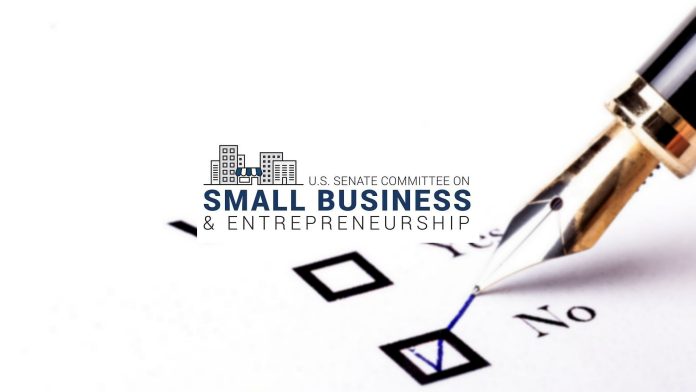In a stark display of political maneuvering, the Senate Small Business and Entrepreneurship Committee faced significant tension during its latest meeting, which raised alarms for small business owners across the country. Ranking Member Edward J. Markey (D-Mass.) voiced strong opposition to the nominations of William Briggs and Dr. Casey Mulligan, President Trump’s nominees for key roles at the Small Business Administration (SBA). This situation serves as a reminder of the ongoing debates surrounding small business governance and regulations, which could impact various sectors in unexpected ways.
Senator Markey, voting alongside every Democratic committee member, articulated his concerns regarding the nominees’ alignment with the current administration’s policies, particularly those that may jeopardize vital protections for small businesses and their employees. He stated, “While Trump, Musk, and their DOGE operatives hide under the cover of darkness – slashing jobs at the SBA, closing district offices, and cutting contracts – we can’t go on with business as usual.” This statement highlights not only his skepticism but also a deeper worry: that the SBA’s mission of supporting small businesses could be subverted.
For small business owners, the implications of such nominations could be profound. The SBA is crucial in providing resources, advocacy, and financial support to small enterprises, which represent a significant portion of the U.S. economy. Markey emphasizes a need for transparency in the SBA’s operations, insisting that they owe it to the American public to ensure that “Main Street doesn’t turn into Pain Street.” The stress on maintaining the integrity of the SBA suggests that any shifts in leadership could affect funding opportunities, assistance programs, and overall advocacy for small businesses at the federal level.
Markey’s challenges to Dr. Mulligan reflect broader concerns about deregulation and its potential impact. He has pointed out that Mulligan’s history raises questions about whether he would genuinely act as an independent advocate for all small businesses. “I remain concerned that Dr. Mulligan will work to advance President Trump’s deregulation agenda,” Markey said, stressing that Mulligan has previously questioned essential worker protections and consumer rights.
This sentiment resonates with many small business owners who have wrestled with regulatory compliance and the financial implications of regulatory changes. The fear is that certain business-friendly policies, while seemingly beneficial for growth, could undermine essential health and safety standards that protect employees and customers alike. Markey’s warning about Dr. Mulligan’s stance on issues like minimum wage and healthcare subsidies speaks directly to the pain points many small business owners face in attempting to balance profitability with providing fair wages and benefits.
Despite the controversy surrounding these nominations, it’s essential for small business owners to consider the potential benefits of a more business-friendly environment. Proponents of deregulation argue that easing restrictions can stimulate growth, making it easier for small businesses to innovate, compete, and expand. However, as Markey cautions, lowering regulatory barriers might come at the cost of critical protections that safeguard employees and maintain a level playing field.
For many small business owners, the current political climate represents both a challenge and an opportunity. Engaging with local advocacy groups and staying informed about legislative changes will be vital to navigating this complex landscape.
As the Senate deliberates further on these nominations, the outcome could shape the direction of small business policy in the coming years. Markey’s assertion that the SBA should not symbolically stand for “Supporting the Billionaire Agenda” underscores a broader call for accountability and commitment to the entrepreneurial spirit that defines small businesses in America.
The stakes are high, and small business owners will need to remain vigilant. Understanding how these political shifts could impact funding, resources, and advocacy efforts is crucial now more than ever. To read more about this pressing matter, visit the original press release at the Small Business Committee’s official site: https://www.sbc.senate.gov/public/index.cfm/pressreleases?ID=2AC25BAB-8BD5-4E99-96C8-0334AC4238A0.
Image Via Envato: orcearo



